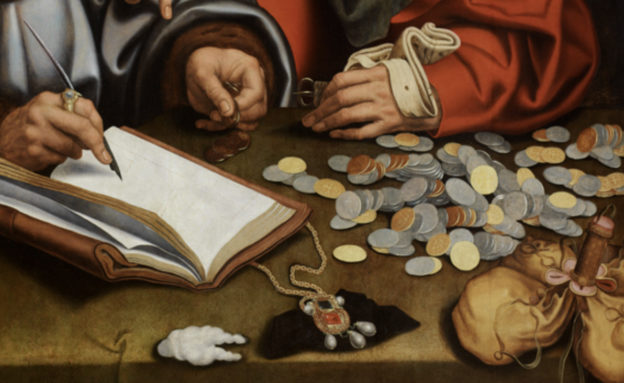Every few years our government takes a census. It helps with understanding data about our population, and things like possible health needs and projecting where they need to invest in more infrastructure. I suppose it also gives useful data for working out how much extra tax they can collect…
The census was a useful tool in centuries past as well. In this passage, we see an example of a census taken of Israel’s men, and the specific requirements that came with it. The census taught three things – that God was the ultimate source of authority, that God values all people equally, and that atonement is needed for God’s people.
After instructing on the altar of incense, God moves to another aspect of the sanctuary’s upkeep. God instructed Moses on the requirements for every male in Israel when a census was taken.
When a census occurred, “each shall give a ransom for his life to the LORD when you number them, that there be no plague among them when you number them” (v.12). The phrase to number them literally meant to “lift the head” or “do a headcount”.
There were definite military overtones. Censuses were often completed to find out how many men could be called up as soldiers. For instance, in Numbers 1, Moses and Aaron are instructed to count all the males aged 20 and over – those who would fight in Israel’s battles.
A ransom was required when a census was taken. Likely, this was because counting something implies some degree of ownership or authority over it. Everyone who was counted ultimately belonged to God, and so only God had the authority to count his people. When King David demanded a census in 1 Samuel 24, the lack of a ransom and command from God resulted in a terrible plague on Israel.
While the word ransom to us brings to mind images of duffel bags filled with unmarked $100 notes, the ransom was a payment which atoned for their life. Everyone owed their life to God, and the payment of the ransom recognised that God owned their life and destiny, especially as they were counted for war.
When the Israelites were numbered, they were to give “half a shekel according to the shekel of the sanctuary (the shekel is twenty gerahs), half a shekel as an offering to the LORD” (v.13). Half a shekel was not a lot of money, but a big number of a little amount is still a big number!
The counting and ransom payment process (according to the underlying Hebrew) appears to be that everyone who was counted stood in one group, and passed the counters to another group (the counted). As they passed, they would drop their half shekel in a pile.
The half shekel was a standardised value, according to a “sanctuary shekel”. That meant that if there was some divergence in currency across Israel over time, there was a common standard against which the currency was weighed.
There were no exceptions to paying the ransom. “Everyone who is numbered in the census, from twenty years old and upward, shall give the LORD’s offering” (v.14). Often laws exclude certain people, like the wealthy and privileged, or at least they feel exempt from the law! But everyone was required to pay.
In the same way, it did not matter what your position of wealth or status was in society. “The rich shall not give more, and the poor shall not give less, than the half shekel, when you give the LORD’s offering to make atonement for your lives” (v.15). You paid, and you paid the same amount, because rich or poor, your life was worth the same to God.
But what happened to the atonement money once it was taken? It was given “for the service of the tent of meeting, that it may bring the people of Israel to remembrance before the LORD, so as to make atonement for your lives” (v.16). The atonement money helped pay for the ongoing expenses of the sanctuary and its continued maintenance.
The Census rules and the ransom payment remind us that God is the ultimate authority over everything. Numbers are not the be all and end all when it comes to the Church. What matters is faithfulness to God, whether 5, 50, or 5,000 people.
We should not measure success by attendance or giving. What God gives in a time and place is what God chooses to give, because the numbers are under God’s command.
Secondly, the ransom payment reminds us that everyone is valued equally in God’s sight. We have a tendency to value some people over others, for instance rich over poor (or poor over rich); powerful over powerless. But we are all worth the same to God.
And that value comes not from a monetary payment but from a ransom payment. We cannot meet the shekel value for a lifetime of sin, but Christ could, and gave his life as a ransom for many.
Through Christ’s blood, God numbers us among his people, ransomed to serve him.

